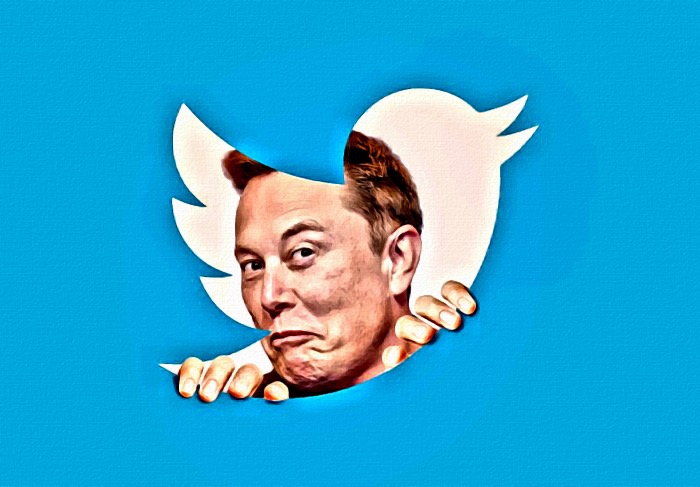Twitter’s board has accepted Elon Musk’s $44 billion offer. A Tale of Two Parties has ensued.
It’s the best of times for conservatives; huge leaps in Twitter followers (205,000 for Ron DeSantis, 206,000 for Donald Trump Jr., 141,000 for Tucker Carlson, and 61,000 for Matt Gaetz). This is for real, prompting the New York Post to suggest it’s evidence of “long-suspected shadowbans.”
This view was confirmed by MSNBC’s Ari Melber, who’s afraid Musk could “secretly ban one party’s candidates [or] secretly turn down the reach of their stuff.” Isn’t that what Twitter did to the GOP in 2020? He also claimed Musk could “turn up the reach of something else and the rest of us might not even find out about it until after the elections.” Isn’t that what Twitter did for Democrats in 2020?
It’s the worst of times for liberals; nightmares of Musk. Senator Ed Markey said Musk “can’t be trusted, and we must pass laws to protect privacy [and] justice for internet users.” Berkeley’s Robert Reich dissed Musk for saying “consumers can go elsewhere if they don’t like Twitter.” Harvard’s Shaun King called Musk “a white nationalist” who will “allow white nationalists to target/harass people.” Dishonest, monopolist, and racist? Put him in the Deplorable basket!
Maybe Musk is a free speech absolutist who believes both sides in a free nation have the right to fight back with words on social media: “free speech is the bedrock of a functioning democracy, and Twitter is the digital town square where matters vital to the future of humanity are debated.” The 1st amendment requires King, Markey and Reich to tolerate what Carlson, DeSantis and Gaetz tweet. Anything less is support for the current double standard on Twitter.
Maybe Musk is a first amendment originalist who opposes most censorship. He argued against social-media censors at a recent TED conference: “If it’s a gray area, let the tweet exist.” Musk gets the social-media generation, who like Teslas and dislike moving goal posts that protect one side. He sees an opportunity to disrupt Big Media and democratize information. Why can’t real news begin as an iPhone video posted online or metadata found on an abandoned laptop? Who gets to decide?
Not the aging liberals at a University of Chicago symposium, where students requested – and did not get – the truth. Freshman Christopher Phillips asked, “All the mistakes of the mainstream media, and CNN in particular, seem to go in one direction. Are we expected to believe that this is all some sort of random coincidence?” CNN’s Brian Stelter replied, “That’s too bad, but I understand that is a popular right-wing narrative about CNN.”
Fellow student Daniel Schmidt asked, “Do you think the media acted inappropriately when they instantly dismissed Hunter Biden’s laptop as Russian disinformation?” The Atlantic’s Anne Applebaum replied, “Hunter Biden’s laptop is totally irrelevant. I didn’t think Hunter Biden’s business relationship [had] anything to do with who should be president of the United States. I don’t find it to be interesting.”
Bingo! A bunch of teens exposed two prominent journalists for the dismissive top-down partisans they are. Back to Ari Melber, because the students wanted to know if Big Media did “turn down the reach” of the Biden laptop story and “turn up the reach” of the Russian bonus story right before the 2020 election. Anything to oust Trump, right? Except the vast majority of voters say they’re worse off now than before the election (source: Gallup). Mostly because Biden botched the US withdrawal from Afghanistan, pandemic, and economy.
Only then did Big Media end Biden’s honeymoon. Until then, remember how the press reported state voter-integrity laws (repeat Biden’s “Jim Crow 2.0” spin) and the border crisis (report viral photos of horse reins as border agents whipping asylum-seeking Haitians). That bias is why we the people need a “digital town square” to question, expose, and condemn the powerful and privileged – where censors “let the tweet exist” with very few exceptions.
So, yeah, maybe Musk is doing Americans a solid by buying Twitter.
